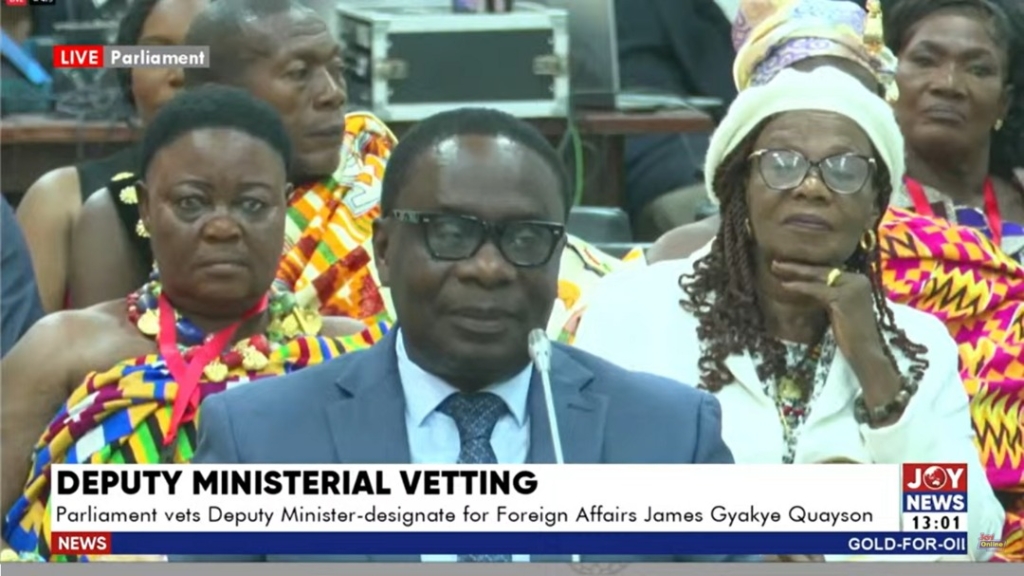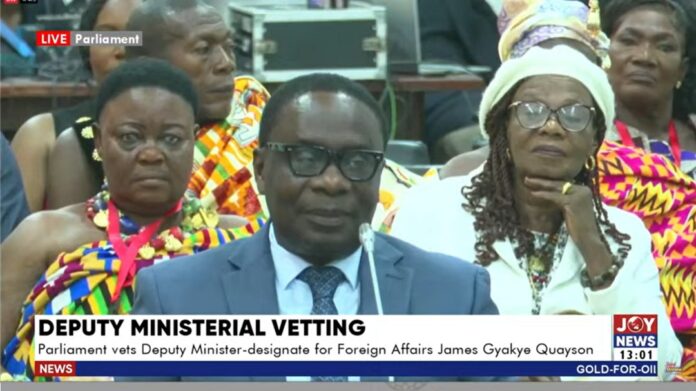
Deputy Minister-designate for Foreign Affairs, James Gyakye Quayson, has called for a review of current visa fee policies by foreign embassies, describing them as exploitative and unfair to many Ghanaian and African travellers.
Speaking at his vetting before Parliament’s Appointments Committee, Mr Quayson expressed deep concern about the non-refundable nature of visa fees, particularly in Western countries, and how they disproportionately affect young Africans seeking better opportunities abroad.
“I personally believe that most of these so-called advanced countries are locking our people. On average, most African youth, because of a lack of opportunities, want to travel outside. A visa is not cheap; even just the application form alone is about $160, which could be a month or two months’ pay for our youth on a labour,” he said.
He lamented that even after such high payments, many applicants, particularly from Africa, are denied visas without any form of reimbursement.
“These embassies are collecting these monies and denying almost 90% to 95% of them. We have to find a way to streamline this to save our youth the money,” he added.
Mr Quayson further alleged that visa fees have become a significant revenue source for foreign embassies operating in Ghana and other African countries.
“Most of these countries are using that as a revenue to support their embassies. If we don’t know that, we think that they are rich countries, so they are able to afford to set up embassies. That’s not the case; most of their revenue comes from us to support their embassies,” he claimed.
To address this, the deputy minister-designate pledged to work closely with his Minister, Samuel Okudzeto Ablakwa, to initiate diplomatic engagements aimed at reforming such policies.
“We will find a way to put an end to that, and I will work with my minister to make sure that any policy that we put together will be something that will be of interest. Because foreign policy is not about protecting foreign nations only,” he emphasised.
Mr Quayson’s strong stance on the issue highlights a growing demand for fairer treatment of African travellers and reflects a broader push within Ghana’s foreign policy circles to prioritise the welfare of its citizens abroad.
DISCLAIMER: The Views, Comments, Opinions, Contributions and Statements made by Readers and Contributors on this platform do not necessarily represent the views or policy of Multimedia Group Limited.
DISCLAIMER: The Views, Comments, Opinions, Contributions and Statements made by Readers and Contributors on this platform do not necessarily represent the views or policy of Multimedia Group Limited.


